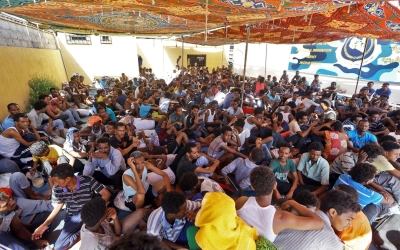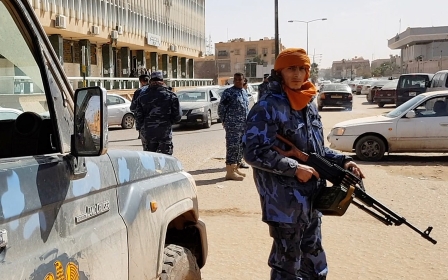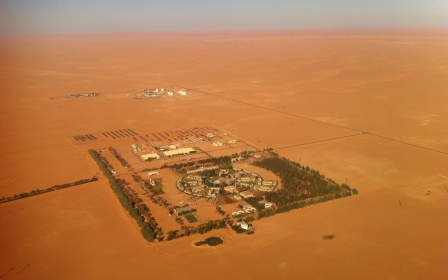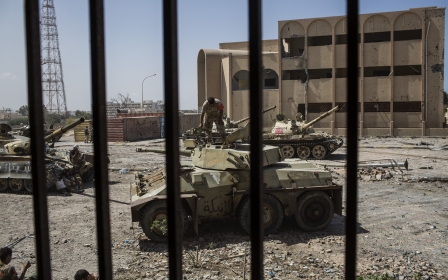At least 50 migrants wounded in Libya detention facility following protest: UN
At least 50 migrants in a Libya detention facility were wounded after authorities suppressed a protest, the UN’s refugee agency said on Friday.
Details of the protest in the Tripoli facility on Friday remain sketchy at this point and the government has yet to make an official comment.
The protest was "driven by frustration and anxiety" as the migrants had been held for months "in extremely dire conditions," the UN refugee agency UNHCR said, according to a Reuters report.
"Around 50 people were reportedly injured when the authorities sought to suppress the protest. Two individuals were badly injured and transferred to Abu Salim hospital," a UNHCR statement said, without giving more details.
The detention centre could not be for reached for comment.
Libya's west coast is a leading departure point in North Africa for migrants crossing the Mediterranean Sea to Europe, mainly from other parts of Africa fleeing wars and poverty.
Last December, a UN report said migrants in Libya are facing "unimaginable horrors", including extrajudicial killings, sexual abuse, torture, slavery and arbitrary detention.
According to the UN report, the Libyan coast guard intercepted 29,000 migrants between the beginning of 2017 and the end of September 2018.
Migrants who get picked up by the authorities and armed groups are placed in detention centres, which the UN described as "inhuman".
During visits to detention centres run by Libya's Department for Combatting Illegal Immigration, UN staff witnessed "severe overcrowding, lack of proper ventilation and lighting, inadequate access to washing facilities and latrines, constant confinement, denial of contact with the outside world and malnutrition", the report says.
Middle East Eye delivers independent and unrivalled coverage and analysis of the Middle East, North Africa and beyond. To learn more about republishing this content and the associated fees, please fill out this form. More about MEE can be found here.





